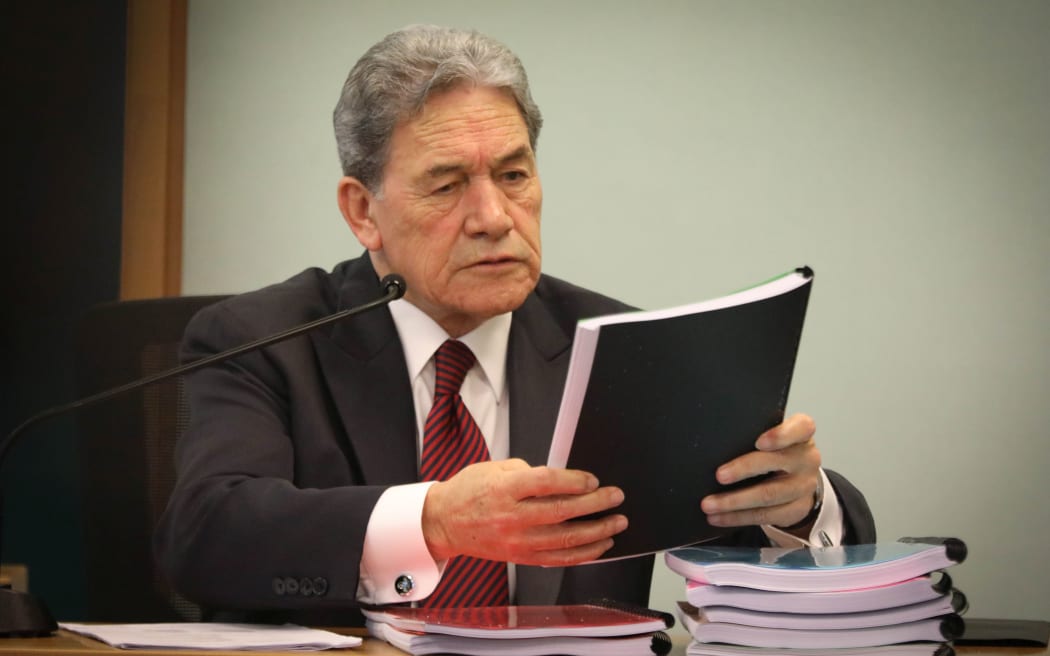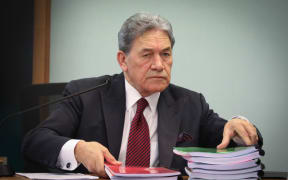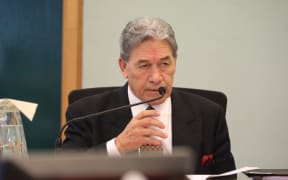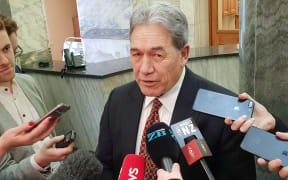By Bryce Edwards*
Opinion - Democracy could emerge the winner from Winston Peters' unusual High Court case against the Crown, according to Dr Bryce Edwards, who hopes that the outcome helps prevent the politicisation of the public service.

Winston Peters in court during his legal claim for a breach of privacy. Photo: RNZ / Cole Eastham-Farrelly
One of the most important episodes of the tumultuous 2017 general election was the hit job on Winston Peters, for pension overpayments. Just a month before polling day, voters were told in the media that the New Zealand First leader had been claiming an incorrectly high level of superannuation.
It was dubbed "the mother of all scandals" because it hit hard at the reputation of New Zealand's longest running politician, who was expected to be the kingmaker after the election. And it directly related to his core constituency - superannuitants - with the suggestion that Mr Peters may have knowingly cheated to get a higher entitlement. It was an attempted king hit on Mr Peters, but it also threatened the electoral performance of his party.
Two years later, a reckoning has now begun. Mr Peters is fighting back through a High Court challenge against those he believes were responsible for wrongly leaking this information to the public. He is seeking a verdict that says his privacy was violated, a possible financial payout in the millions and, most importantly, a correction to an information sharing procedure that is detrimental to democracy.
Mr Peters is arguing that government departments should never have informed National Party Cabinet ministers about the overpayments. He says it was none of their business, and enabled National to use the information as a dirty weapon against him, by leaking it to the media.
It's yet to be proven that the National politicians were in any way involved in the leak - even if it seems highly likely. But what is not in doubt is that the dirt on Mr Peters was passed on to his political opponents by public servants. Mr Peters is right to challenge this.
There is something wrong when government departments are passing on potentially damning electoral weapons to their masters of the day. There's a term for this: the politicisation of the public service. It's what erodes democracies, allowing ruling politicians to have unfair and unethical advantages over their opponents.
The core political question arising from the High Court trial is therefore: "Should the power of the state be available to ruling politicians to be used against their political opponents in a democracy?" Hopefully, Chief High Court Judge, Justice Geoffrey Venning's verdict will be "no".
Regardless of whether Mr Peters wins his $2m in compensation, or whether former Cabinet ministers Paula Bennett and Anne Tolley are found to be guilty of helping spread privileged information about an opponent, let's hope there will be a clear condemnation of the governmental system that has allowed this to occur.
Officials supplied the dirt on Mr Peters under the auspices of the official "no surprises" policy of keeping their masters informed of operational aspects of the Ministry of Social Development. In practice, it amounted to a form of "dirty politics".
There are colourful and complicated elements to the trial - such as whether Mr Peters filled out his forms properly, whether he really asked WINZ staff "Do you know who I am?", the involvement of his partner, and so forth - but those aren't really important. Ultimately, what is vital in this trial is the role of very senior officials in briefing their bosses on issues that they had no right to know about.
If New Zealanders are to have confidence that our democracy isn't descending into corruption, then these types of highly-politicised "no surprises" briefings have to be made to stop. That would be the best outcome from Mr Peters' court action.
* Bryce Edwards is a Victoria University of Wellington academic whose main research areas are in political parties, elections and Parliament.




